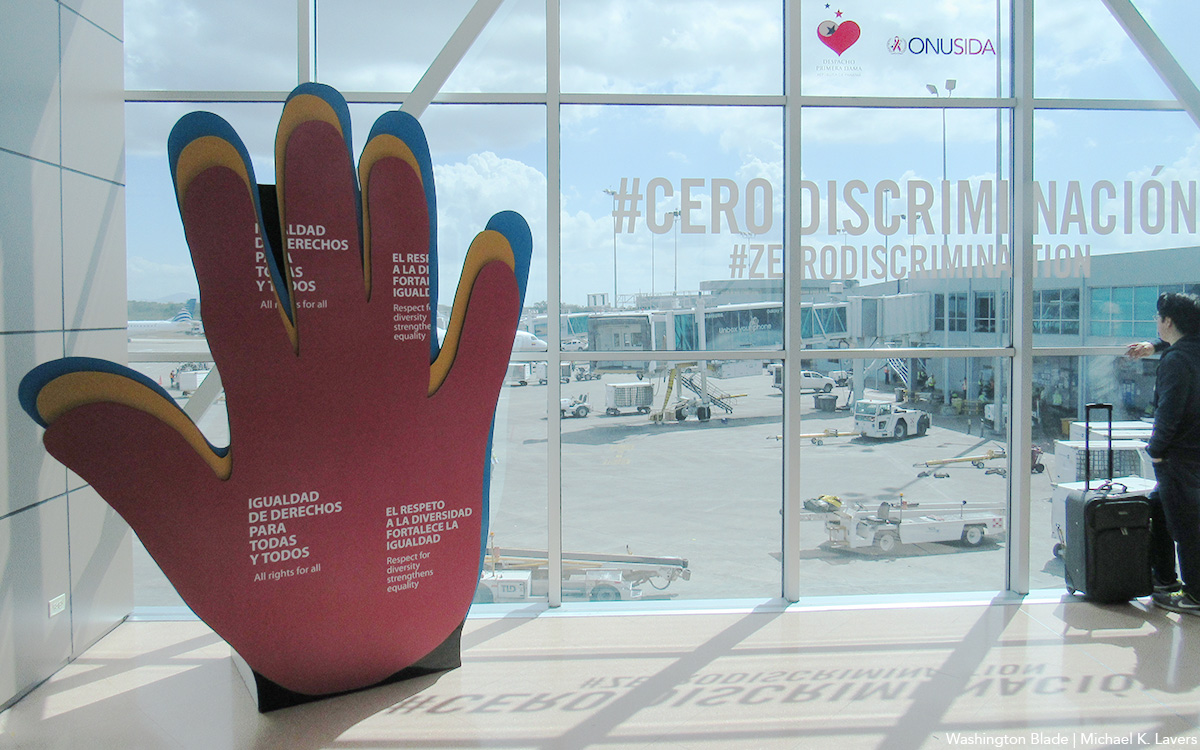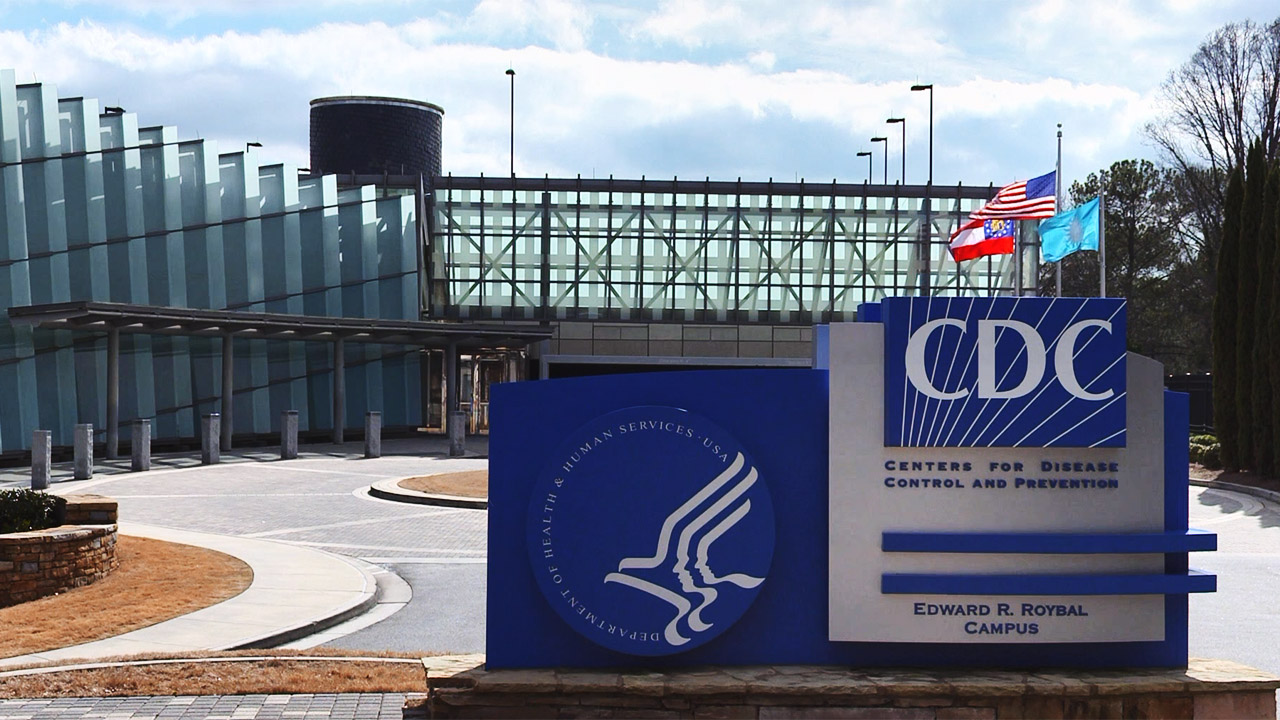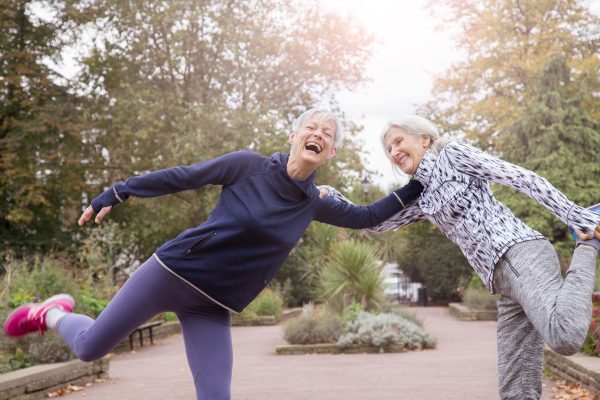Health
Local news in brief
Black HIV testing initiative launched; Va. AIDS program closed
 Black gay men launch HIV testing campaign
Black gay men launch HIV testing campaign
Ten black gay men with HIV kicked off an “unprecedented citywide effort” in January to prevent the spread of HIV in D.C. among black men who have sex with men through a new, federally funded project organized by the National Association of People With AIDS.
The Bayard Rustin Community Mobilization Project is a coalition of community-based AIDS groups, faith-based and academic institutions, and the D.C. Department of Health that is determined to address an alarmingly high HIV prevalence rate among black gay men in the District, according to a NAPWA spokesperson.
“We call these 10 men the first ‘HIV testing advocates,’ and we empower them to speak at bars and restaurants, churches, community forums – really any opportunity at which they can reach the community, educate them about HIV and testing, and change behavior,” said NAPWA spokesperson David Sheon.
A brochure describing the project says it is named after black civil rights strategist Bayard Rustin, an adviser to famed civil rights leader Martin Luther King Jr. and the lead organizer for King’s 1963 civil rights march on Washington.
Rustin, who was gay, died in 1987 at a time when his sexual orientation was not widely known outside civil rights group circles. He became an advocate for gay rights causes in the latter part of his life, prompting LGBT activists to view him as a role model for civil rights organizing.
Some of the Rustin Project’s HIV testing advocates as well as organizers of the project will be greeting the community at a booth on Saturday, Feb. 5, during a National Black HIV/AIDS Awareness Day event hosted by the Metropolitan Community Church of Washington at 474 Ridge St., N.W. The event is sponsored by the D.C. AIDS service group Food & Friends.
The Rustin Project is hosting its own community forum to discuss its HIV prevention efforts targeting black men who have sex with men on Feb. 14 at the Barbara Jordan Conference Center located at the Kaiser Family Foundation offices, 1330 G St., N.W. The event is open to the public.
The most recent data on HIV prevalence in D.C. highlight the need for the Rustin Project, organizers say. Among the 16,513 people living with HIV/AIDS in D.C. as of 2008, 40 percent, or 6,722, contracted HIV through male-to-male sex. Among that group, 4,091, or 60 percent, are African American, the data show.
Virginia closes AIDS drug program for new patients
In a little-noticed development, the Virginia Department of Health in December closed its AIDS Drug Assistance Program, or ADAP, to new enrollments except for pregnant women, children 18 years old or younger and people receiving treatment for an AIDS-related infection.
The department said it was also planning to remove from the program approximately 760 clients, with the aim of helping them obtain needed AIDS medications through other programs, including short-term drug programs offered by pharmaceutical companies that manufacture the drugs.
Dr. Karen Remley, Virginia’s health commissioner, said in a statement issued in December that the ADAP cutbacks were due to an unprecedented increase in enrollment in the Virginia ADAP program and increased costs for the drugs.
ADAP is part of the federal Ryan White CARE Act program in which states and the federal government share the cost of paying for life-saving AIDS drugs to low-income people who lack health insurance coverage.
AIDS activists have called on Congress and the White House to push for an increased share of federal funding for ADAP, saying the national recession has curtailed revenue in many states, forcing them to cut back on their ADAP budgets.
“Virginia ADAP will continue to serve more than 3,000 clients who will remain in the program,” a state health department statement says. “No interruption in care will occur for any ADAP clients.”
As of late January, D.C. and Maryland have not put in place any cutbacks in service for their ADAPs. Unlike many states, D.C. and Maryland do not have a waiting list for new ADAP patients.
Health
UNAIDS to commemorate Zero Discrimination Day’s 10th anniversary
UN agency urges global action to protect human rights

As the world marks the 10th anniversary of Zero Discrimination Day; UNAIDS is sounding the alarm on the increasing threats to human rights, calling for renewed efforts to protect the rights of all individuals as a fundamental step towards ensuring health for everyone.
Established by UNAIDS a decade ago, Zero Discrimination Day aims to promote equality and fairness regardless of gender, age, sexuality, ethnicity or HIV status. The progress achieved over the past years is now in jeopardy, however, due to rising attacks on the rights of women, LGBTQ people and other marginalized communities.
UNAIDS Executive Director Winnie Byanyima emphasized the critical link between protecting human rights and safeguarding public health.
“The attacks on rights are a threat to freedom and democracy and are harmful to health,” she said in a press release. “Stigma and discrimination obstruct HIV prevention, testing, treatment and care and hold back progress towards ending AIDS by 2030. It is only by protecting everyone’s rights that we can protect everyone’s health.”
Despite challenges, there has been notable progress.
At the onset of the AIDS pandemic more than 40 years ago, two-thirds of countries criminalized consensual same-sex sexual relations. They are now decriminalized in two-thirds of countries. An additional 38 countries around the world have pledged to end HIV-related stigma and discrimination, contributing to positive changes that include 50 million more girls attending school compared to 2015.
To sustain and enhance these advancements; UNAIDS urges global support for women’s rights movements, LGBTQ rights, racial justice, economic justice, climate justice and peace initiatives. By standing with communities advocating for their rights, the U.N. aims to reinforce the collective effort towards a more inclusive and equitable world.
Zero Discrimination Day is observed on March 1.
Events and activities that will take place around the world throughout the month will serve as reminders of the essential lesson and call to action: Protecting everyone’s health is synonymous with protecting everyone’s rights.
“Through upholding rights for all, we will be able to achieve the Sustainable Development Goals and secure a safer, fairer, kinder and happier world — for everyone,” said Byanyima.
Health
New CDC report finds transgender women at higher risk for HIV
More than 1,600 people in seven cities surveyed

The Centers for Disease Control and Prevention issued a new study report this week that revealed that restricted by employment and housing discrimination and lack of access to needed gender-affirming healthcare for transgender women increasing the risk of contracting HIV.
Researchers reviewed data from a 2019-2020 survey, the National HIV Behavioral Surveillance Among Transgender Women, which found that the demographics of HIV/AIDS have been disproportionally high, especially among Black and Latina trans women, who had experienced employment and housing discrimination coupled with lack of access to gender-affirming healthcare.
The Jan. 25 Morbidity and Mortality Weekly Report was based on data studies of more than 1,600 trans women in seven major urban locales. Participants from Atlanta, Los Angeles, New Orleans, New York, Philadelphia, San Francisco and Seattle were chosen by referrals from people and community-based organizations who knew or were part of the local population of trans women.
The study’s researchers noted: “Employment discrimination occurs at the overlapping nexus of poverty, homelessness, incarceration, health insurance, disability, food insecurity and survival sex work. These issues are interconnected.”
The study stated that trans women’s inability to access quality healthcare, including gender-affirming treatment or access to PrEP, and can expose them to potential incarceration as many turn to “survival sex work” and violence, which increases the risk of contracting HIV.
The study’s author’s pointed out: “When economically marginalized transgender women are refused employment, this refusal cyclically contributes to economic hardships. This analysis …demonstrates the importance of transgender women working and living with dignity and without fear of unfair treatment.”
Health
A Whole New Perspective on Well-Being
The Mather’s team recognizes that everyone’s wellness journey is completely unique to their life experiences and influences.

It’s easy to spot the distinctive, elegant silhouette of The Mather, a Life Plan Community for those 62+ opening this spring in Tysons, Virginia. What is not apparent to the naked eye is The Mather’s unique wellness philosophy, which is literally built into the community.
The Mather’s team recognizes that everyone’s wellness journey is completely unique to their life experiences and influences.
Nature is one of the important factors that contribute to well-being. So The Mather is incorporating biophilic design—a design approach to facilitate access to nature or things that replicate natural patterns. This can include interior spaces with sightlines to a garden, choosing natural wood and stone as interior materials, or incorporating fragrant flowers and plants indoors to spark memories and provide tactile opportunities such as gardening.

“Providing biophilic design within interior settings connects residents to the natural world,” says Mary Leary, CEO and President of Mather, the organization behind The Mather. “Research shows that a connection to nature provides positive benefits to mental states and overall well-being. At The Mather, biophilic design is the intersection of buildings and programs with nature in an urban setting.”
“The Mather is attracting a diverse group of older adults,” says Mary. “As a result, we aim to incorporate wellness practices from around the world, including Wyda movement theory of the Celtic Druids, which helps people achieve harmony with nature and contentment through mindfulness.” This holistic regenerative approach is similar to Qi Gong and yoga, while born in a different part of the world. Mather Institute has a special focus on mindfulness to support older adults’ practice of present moment awareness, which can lead to increased overall well-being, compassion, and joy.
A very different example of a wellness offering at The Mather is the Gharieni Welnamis spa wave bed, which uses computer-controlled vibrational therapy and audio frequencies to train the brain to relax. “The bed increases mindfulness, concentration, and creativity—all of which support our mission of creating Ways to Age Well,SM” says Mary.
These and other personalized ways to wellness will ensure that residents of The Mather can choose from seemingly countless ways to focus on their well-being. In other words, the sky’s the limit!
-

 South America3 days ago
South America3 days agoDaniel Zamudio murderer’s parole request denied
-

 Maryland4 days ago
Maryland4 days agoMontgomery County police chief discusses arrest of trans student charged with planned school shooting
-

 Politics5 days ago
Politics5 days agoCourt records raise concerns about right-wing TikTok investor’s influence
-

 Commentary4 days ago
Commentary4 days agoWorld ‘isn’t much different today’












